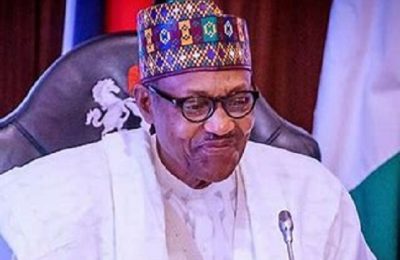
An orthopaedic surgeon, Dr Christopher Otabor has warned against the dire consequences of Nigeria’s economic crisis in the nation’s healthcare system.
Otabor who is also the Chief Medical Director of Alliance Hospital in Abuja, noted that the economy is taking a direct hit on Nigeria’s health system, and people are dying in their numbers.

Otabor in his Keynote address at the 9th AGM and Scientific Conferences of Medical and Dental units of the Federal Medical Centre, said, “We can’t hide from that, and we cannot afford to keep quiet, fold our hands, and do nothing. We must respond.
While addressing the urgent need for innovation among healthcare professionals, Otabor emphasized, “We must think of new ways of doing things and improve the health situation to make the best out of the already bad situation.”
He, therefore, called on the government at all levels to take responsibility and act decisively.
“We cannot continue to behave like drunken sailors in a sinking ship. There is a crisis in the land, and things cannot continue as usual.
“We must move away from prebendalism and begin to introspect on how we can use our positions of power to improve the lives of the citizenry and the healthcare of Nigerians. When people lose their health, they ultimately lose their lives.
“Whenever there is an economic crisis, it takes a terrible toll on healthcare. We are facing inflation rates we haven’t seen in recent years, compounded by a high misery index.
“When you have inflation coupled with unemployment, that’s misery. Additionally, there’s stagflation due to the lack of economic growth, inflation, and unemployment. These three factors are hitting the system hard, affecting the health of the population.”
He further highlighted the cascading effects of the crisis, including disruption in the healthcare supply chain, reduction in demand for healthcare services, malnutrition, late presentation at hospitals, and increased incidence and complications of both communicable and non-communicable diseases.
“People are not able to access healthcare, and even the supply chain is affected. Many companies are folding up and leaving the country, making the cost of healthcare supplies even more out of reach for ordinary people.”
“People are committing suicide for over a thousand naira anti-malarial medicine because they can’t afford it. Most now patronize quacks because they can’t afford to come to the hospital.”
Otabor, however, called for innovative solutions to reach as many people as possible. “We must come up with new ways to enable us to provide care to the masses despite the economic challenges,” he urged.
He highlighted the broader impacts of the economic crisis on population health, including increased domestic violence, mental health problems, suicide rates, and overall mortality.
“We must take responsibility at both government and hospital levels to ensure we make the best out of the little resources available and address this crisis head-on,” Otabor concluded.
The Medical Director, Federal Medical Centre, Prof. Saad Aliyu Ahmed, who is the Chief Host of the event, revealed that the hospital management is intensifying efforts to seek collaborative partnerships for driving research programs, including signing an MoU with Base University.
Ahmed, who was represented at the occasion by the Head of Clinical Services, Dr. Muftau Bioku also expressed his unwavering support for MDCAN, emphasizing, “Our doors are open to all.”
In her welcome speech, the MDCAB Chairman, Dr. Eziechila Bassie, highlighted the relevance of this year’s theme, “Crisis Response: Strengthening Health Systems During Economic Uncertainty,” considering the current economic challenges in the country.
“We are experiencing unprecedented economic hardship,” Dr. Bassie stated. “The inflation rate is soaring, severely impacting the masses and affecting every aspect of our lives, including health.”
Although the Nigerian government has made efforts to reach common Nigerians through the National Health Insurance Act, the percentage of Nigerians, especially the most vulnerable, who have benefited remains alarmingly low.
One wonders what our health indices will look like in a couple of years if the economic situation is not adequately addressed.”
ALSO READ THESE TOP STORIES FROM NIGERIAN TRIBUNE
Minimum wage: We accepted N70,000 to prevent hike in petrol price — NLC







